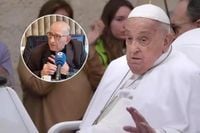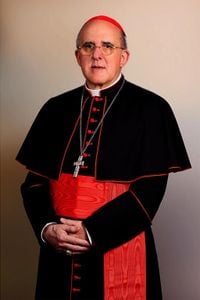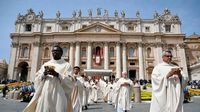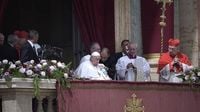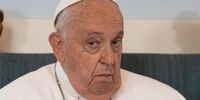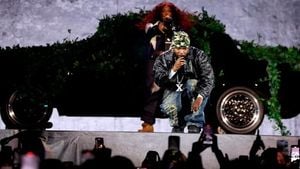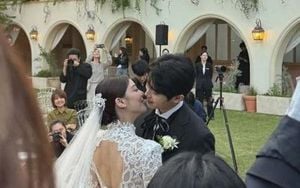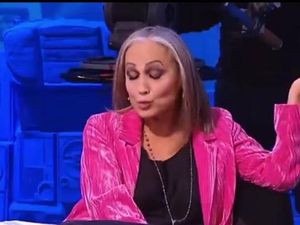Pope Francis passed away on Monday, April 21, 2025, at 7:35 AM in his residence at Casa Santa Marta in the Vatican, marking a significant moment in the history of the Catholic Church. The pontiff's death, attributed to bilateral pneumonia, has left the world in shock and has initiated a period of mourning and speculation regarding his successor.
As the Catholic Church mourns the loss of its leader, the College of Cardinals is preparing for a conclave to elect the new Pope. This process is set to begin 15 days after the death of Pope Francis, as per the established norms of the Church. During the conclave, cardinals under the age of 80 will gather in the Sistine Chapel to deliberate and vote for the new pontiff. Currently, there are 137 cardinals eligible to vote, but only five Spanish cardinals will participate in the election due to age restrictions.
Among the candidates being discussed as potential successors to Pope Francis is Cardinal Juan José Omella, the current Archbishop of Barcelona. At 78 years old, Omella has a long history of service within the Church, having dedicated over 50 years to its mission. His leadership style is characterized by a commitment to dialogue and conciliation, which has made him a respected figure within the Spanish Episcopal Conference, where he served as president since 2020.
Born in 1946 in Cretas, Teruel, Omella has gained an international profile through his theological training and pastoral commitment. His alignment with the reformist ideals of Pope Francis positions him as a strong candidate for the papacy, even though he faces stiff competition from other notable figures.
Another prominent name in the running is Cardinal Carlos Osoro, the Archbishop Emeritus of Madrid. Osoro, who is 79, is known for his close relationship with Pope Francis and his advocacy for a more open and modern Church. His extensive experience in pastoral management and his charismatic approach make him a compelling candidate. However, Osoro's upcoming 80th birthday on May 16, 2025, will disqualify him from voting in the conclave, which raises questions about his viability as a candidate.
Other Spanish cardinals eligible to vote include Antonio Cañizares, José Cobo, and Ángel Fernández Artime. Cañizares, the former Archbishop of Valencia, represents a more traditional wing of the Church, while José Cobo, who was appointed Archbishop of Madrid in 2023, is seen as a progressive voice within the episcopate. Fernández Artime, currently the pro-prefect of the Dicastery for Institutes of Consecrated Life and Societies of Apostolic Life, also brings a wealth of experience to the table.
Spain holds a significant position in the College of Cardinals, contributing five electors to the conclave, despite having a total of 13 cardinals. The other eight cardinals, including Ricardo Blázquez and Luis Francisco Ladaria, are over the age of 80 and therefore cannot participate in the voting process.
The conclave itself is steeped in tradition, having been established in its current form in the 11th century. Cardinal electors will gather in the Sistine Chapel, where they are required to vote in secrecy. The election process involves multiple rounds of voting, with a two-thirds majority needed to elect the new Pope. Once a decision is reached, a white smoke signal will be released from the chapel, indicating that a new pontiff has been chosen.
During this transitional period, the Vatican will observe a novendiale, a nine-day period of official mourning for Pope Francis, during which daily masses will be held in his memory. The late pontiff had expressed a desire for a simple funeral, opting for burial in the Basilica of Santa Maria Maggiore in Rome, rather than the more elaborate ceremonies that characterized the funerals of previous popes.
As the world watches closely, the selection of the next pope will likely reflect the ongoing tensions and challenges facing the Catholic Church today. Issues such as the need for reform, the Church's stance on social issues, and the balance between tradition and modernity will all play a crucial role in shaping the future of the papacy.
In summary, the death of Pope Francis has opened a new chapter for the Catholic Church, with several Spanish cardinals emerging as potential successors. The upcoming conclave promises to be a pivotal moment in determining the direction of the Church in the years to come, as cardinals navigate the complex landscape of faith, leadership, and global influence.
